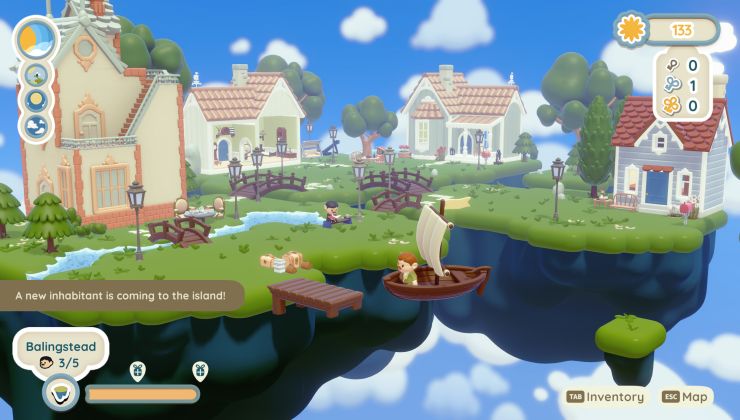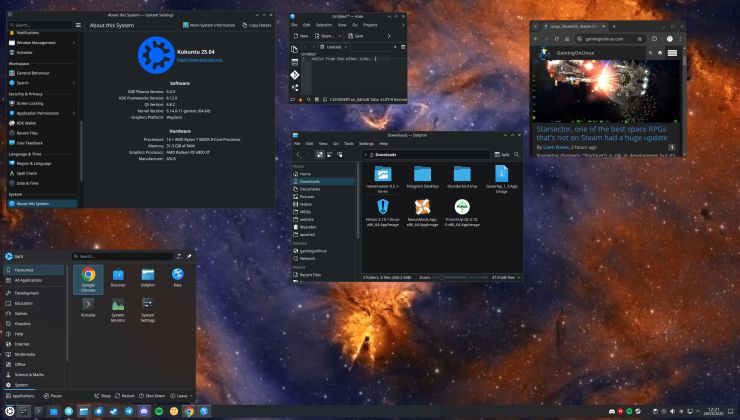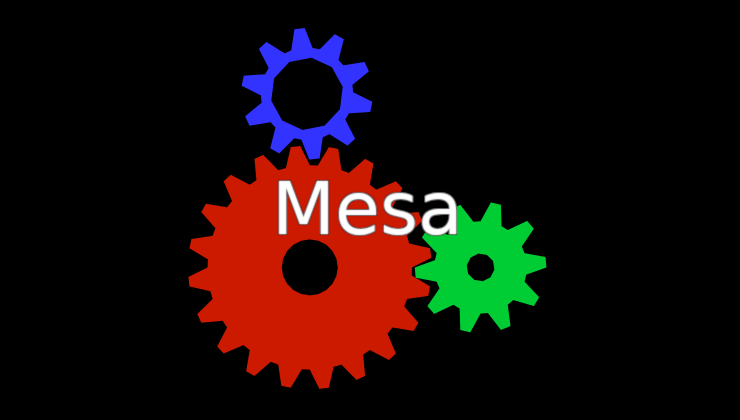Even though Epic Games announced recently how they expanded support for Easy Anti-Cheat to have full support of native Linux, plus Wine / Proton (and so the Steam Deck), it seems it's not as easy as we hoped.
In the original announcement, Epic mentioned how it can be enabled with "a few clicks in the Epic Online Services Developer Portal" but the situation is never that simple. A developer of Warhammer: Vermintide 2 has written a post on Steam to explain, noting that there are two versions of EAC. There's the original and the newer version used via Epic Online Services. The majority of games are likely still with the old version, since the newer one needs SDK upgrades and newer integrations.
We already knew that developers needed the latest SDK from the original announcement, but this makes it simpler for us all to understand.
Here's what they said:
One part we already know not to be true, is a requirement of Epic Online Services authentication, as the developers of Brawlhalla showed in their own testing with the new integration which worked without users touching Epic's services directly. The other point remains though, as developers won't upgrade from the older implementation to the newer without a good reason, due to extra work involved when the older one is still getting the latest EAC updates as normal (as confirmed in a later post). Although, there may come a time Epic force EOS for it, but it stands to reason they haven't currently as it would have been a big upheaval for so many developers using it and likely caused plenty of developer backlash there.
Tripwire Interactive also hinted towards the exact same thing, when asked about hooking up support for
Rising Storm 2: Vietnam, a developer noted back in September 2021, "The version of EAC used on RS 2 is not the version that is advertised in this, and it is not something that will work for RS 2 players.".
Hopefully the actual work involved in moving from old EAC to new isn't too much, but it's a reason why we've yet to see any really look to do it. Once the Steam Deck is out though, it should improve, if enough players ask developers to get it sorted, otherwise players may have to resort to a manual install of Windows on the Steam Deck instead of SteamOS 3 to play some of the most popular multiplayer titles.
If a game is on this list https://steamdb.info/tech/AntiCheat/EasyAntiCheat/ but the same game is not on this list https://steamdb.info/tech/SDK/EpicOnlineServices/ one can conclude it still uses the non-EOS EAC.
Who wants to make a script to XOR the lists?
Here's the opposite. Games that use both.
https://steamdb.info/instantsearch/?refinementList%5Btechnologies%5D%5B0%5D=AntiCheat.EasyAntiCheat&refinementList%5Btechnologies%5D%5B1%5D=SDK.EpicOnlineServices
Note: It does not necessarily mean they use EOS EAC even if they do use EOS for other things. So it's more accurate to work out the negative scenario.
Last edited by rustybroomhandle on 10 Jan 2022 at 1:37 pm UTC
I'm not sure if I understand this correctly. So supposedly just updating the EAC version , will automagically enable proton support? or even with the up-to-date version you still have to enable proton support manually?From what I understand from the article I also have the same question.
Developers first need the EOS SDK version, and then they need to manually enable Proton support in the settings.I'm not sure if I understand this correctly. So supposedly just updating the EAC version , will automagically enable proton support? or even with the up-to-date version you still have to enable proton support manually?From what I understand from the article I also have the same question.
One part we already know not to be true, is a requirement of Epic Online Services authentication, as the developers of Brawlhalla showed in their own testing with the new integration which worked without users touching Epic's services directly.Unfortunately that's not true. EOS authentication *has* to be done to use EOS EAC. The users just don't see it, as EOS authentication is independent of an EGS account ;) (Unless they block access to EPIC servers in their firewall or similar stuff, which seems to be the case for some users as we have seen with our game)
Still, it does create an EOS "account" internally that maps your SteamID to that EOS ID, but that's about it. EOS does not get to know anything other than that (and obviously things like your IP while being connected to their backend, the same way that EAC servers would have anyway)
Hopefully the actual work involved in moving from old EAC to new isn't too much, but it's a reason why we've yet to see any really look to do it.It's not *that* much, but it's still *way* more than flipping a switch as some people read into EPIC's announcements. Well, actually EPIC's announcement was correct *if* you were already using EOS EAC, but for those that have to migrate from legacy EAC it's more due to adding a new framework, including all the steps to authenticate, verify users etc. The EAC APIs themselves are *mostly* the same though.
If I were them I would not bother doing the work to integrate a completely different version of EAC. Sounds like they might as well just drop EAC and switch to a different solution like BattlEye.*That* is definitely way more work though ;)
EAC with EOS that is the new version talked in this article doesn't require any login at all for the users.See above, it does not require a login but does authenticate with EPIC (i.e. EOS) services. For some users that's indeed too much already, even though EAC is part of EPIC anyway so using EAC alone would have exchanged the same data with them already.
I also still do not see what the point is of sticking to older anticheat solutions because surely that's the one thing you need to be up to date.The security features from EAC update on the backend without a game dev doing updates to a game. It's just the integration with the game that the game devs need to update themselves.







 How to set, change and reset your SteamOS / Steam Deck desktop sudo password
How to set, change and reset your SteamOS / Steam Deck desktop sudo password How to set up Decky Loader on Steam Deck / SteamOS for easy plugins
How to set up Decky Loader on Steam Deck / SteamOS for easy plugins
So the "just a few clicks" statement made in the original announcement wasn't entirely accurate, and would only apply to titles using the EOS version of EAC, which simply hasn't been many games aside from either pretty new ones, and likely predominantly Epic exclusive titles.
We are still looking at what is or isn't going to be possible, but it's not as easy as it was made out to be -- far from it in fact.
There may be other solutions or workarounds, but ripping out the old EAC and rewriting everything to implement "NuEAC" and potentially asking our entire playerbase to connect through and sign through EOS for an honestly tiny market share that was (and would remain) unsupported from the get go might be a deal breaker.
Time will tell.